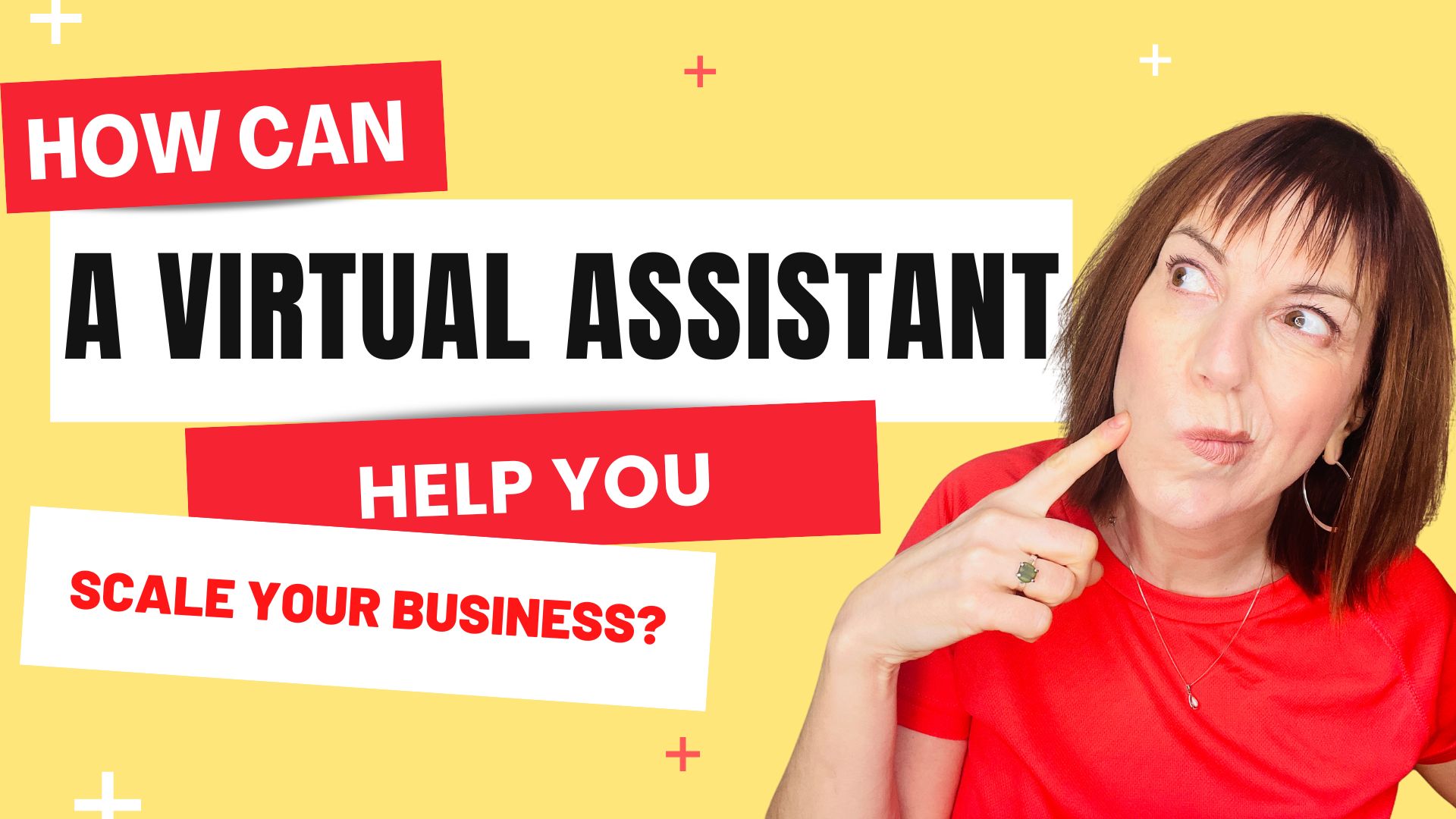Episode Summary
Part II of a VERY special interview Ron Klein is the grandfather of possibilities. There is no one like him! He is the creator of many things we take for granted. He is the inventor of the credit card magnetic strip and MLS real estate listings to name a few. Ron talks to us about business. His advice is simple and profound. Entrepreneurs this is a rare and special opportunity! Listen in as this Ron Klein 86 years young takes us on a journey of remarkable discoveries and inventions.
Learn
-how any problem can become an opportunity
-why being a communicator can bring you big rewards
-the best way to look at your business
-the secret to running any business
-what groundbreaking projects he’s working on right now
Ron Klein is an ordinary man who accomplishes extraordinary things. He is a PROBLEM SOLVER. Every solution has resulted in monumental change, either in a new invention or a simple solution. His innovative ideas have changed the world. He is the inventor of the Magnetic Strip on the Credit Card, Credit Card Validity Checking System, and the developer of computerized systems for Real Estate (MLS) Multiple Listing Services, Voice Response for the Banking Industry and BOND Quotation and Trade Information for the New York Stock Exchange.
Ron‘s latest patent is for a device that enables a visually impaired person the ability to identify an item when in the physical range of that item. It utilizes a smartphone and special coded adhesive labels. We have enhanced Eli Technology to provide unlimited marketing functions and benefits for all industries. Ron is a STRATEGIC ADVISOR – CONSULTANT – MENTOR – PROBLEM SOLVER and SPEAKER.
Huffington Post, brief video clip about Ron: https://youtu.be/sjLPFzuftnA
Join The Community: https://www.facebook.com/groups/WinTheHourWinTheDay/
Win The Hour, Win The Day! www.winthehourwintheday.com
Podcast: Win The Hour, Win The Day Podcast
Facebook: https://www.facebook.com/winthehourwintheday/
LinkedIn: https://www.linkedin.com/company/win-the-hour-win-the-day-podcast
You can find Ron Klein at:
Website: https://thegrandfatherofpossibilities.com
Email: ronklein@4ronklein.com
LinkedIn: https://www.linkedin.com/in/ron-klein-611a2810
Check out the Outsourcing Playbook For Busy Entrepreneurs here: https://winthehourwintheday.com/outsourcing-playbook
Ron Klein PART 2
Kris Ward: Hey entrepreneurs. Are you going full speed? Just trying to keep up. Do you feel you have more losses than wins for years? I was rushing to get to the next thing. There was always something that I had to learn before. The thing I actually needed to learn. I felt like it was running in the wrong direction and moving even further away from my goals.
[00:00:20] So the big question
[00:00:21] Ron Klein: is how do you
[00:00:22] Kris Ward: stop the craziness? How do you get to your next win? Well, this podcast will give you the answer. Join me on my journey. As we have real conversations about struggles, successes, and tips, so we can get you quicker, faster result, no fluff, and get you to your next win. Now
[00:00:43] Hey listeners. If you’re just jumping in here right now, please note that this is part two of a podcast. We have the fabulous Ron Klein. You may not have heard of him, but you have used things. He invented like every day, like the strip on the back of the credit card, like MLS, when you’re looking for a house, like all these things, he’s a fantastic human being.
[00:01:06] He is like, I don’t know, something like 88 years young or something. Deal inventing today. Unbelievable things that you’ll hear in this podcast, but make sure you go back and grab the first part. He just had so many stories to tell us, and as he said, Hey, people want to talk to Einstein he’s here. So he wants to share with him, share with us.
[00:01:26] And I certainly didn’t want
[00:01:27] Ron Klein: to interrupt you. I need a dress meant to leg circuit card formats out. Then I needed manufacturing people to put the components on the boards. And it was growing so fast. I needed money cause I was getting so many orders, but I had no money to buy material and pay the people.
[00:01:46] So I went to investors and I said, I need help. Well, I was able to raise three quarters of a million dollars in the late sixties. Which was equivalent, I guess, to millions today get started and the company continued to grow. And after a while it was growing so rapidly, guess what? I needed more money. I didn’t have enough money to fill the orders.
[00:02:13] So I went back to my investors and they said, what do I do now? They said, well, let’s have an IPO. Let’s take it public. I had no idea what a public, what he meant by public. I said public is that there’s little stalls outside of construction sites. No, we’re going to go to the stock market. We’re going to go public and initial private placement.
[00:02:36] So I went to the library and I got myself. A book on the 1934 securities act allotted everything about registration, prospectuses, and so on. And I was the sharpest guy in S one S two registrations. We put together the company together. So get public. I raised another couple of million dollars and I was happy.
[00:03:00] Around that time, we became extremely attractive to a major insurance company that said we like what those young guys do we want to acquire it. So, and I figured, okay, maybe it’s time to retire. I was 34 years old. It was retirement time. Right? I was bought out. And three days later after I did all the fishing, I wanted a fish.
[00:03:28] I said, I got to go to work. I said, this is not for me. I’m not, you know, I’m not used to sitting on my shelf. I work a minimum of 18 hours a day. I went back to him. I said, I’m going to give you back all your stock options. Just let me free out of my contract. I want to go to work. Had no idea as to what I wanted to do.
[00:03:48] All I knew was I didn’t want another 125 employees. I wanted something that would generate residual income. So I figured well, until I can come up with a good idea, I’m going to start selling a representing other people’s products. And I was really sharp and communications and teletypes. So I started selling communication modems for the connect to computers.
[00:04:13] Then one day I was calling on a major client that I used to deal with who was in the communications business, who use loads of communication gear. And while I was sitting at his desk, I saw a bid sheet on his desk and that’s when my whole career changed. And I said, what is this? And he said, Oh, that’s a bid sheet from the Western union company.
[00:04:36] They refurbished teletype equipment every week and sell it. Uh, refurbished to the communication industry. And he said, you know, we’re in the news business, it was a big company in the news business. And he said, we use tons of tons of teletypes, but he says, we’re so overstocked, Natalie. He said, would you like the bitchy?
[00:04:56] And I said, why not? Sounds interesting. I took the bid sheet, I rented a truck and I went to a warehouse where Western union did all this refurbishing, which was 60 miles from my house in New Jersey. And I went there and I was so excited. They said you came at such an opportune time. We’re putting up 12,000 of old, old teletypes that were used during the second world war.
[00:05:25] They ruin battleships. They’re great. We’re refurbishing some of them and they’re fantastic. We get 12,000 of them. You want to bid on them? I figured I have no idea what to do. I bid pennies pennies on the dollar, and I was so excited. I went back the following week and they said, guess what, Mr. Klein, you won all 12,000.
[00:05:51] I was so excited, but you know what? I did, Chris myself, the worst liability I could ever buy. I never asked where they were dumb as that. Okay. Fortunately, 4,000 were in a warehouse close to where Western union was. The other 8,000 were all over the country. They were in Dallas, they were in California.
[00:06:18] They were in Chicago and they Western union said that you understand Mr. Klein, you have to take possession of these in 30 days. Hmm, absolutely. Holy Moses, what do I do now? These weigh hundreds and hundreds of pounds, looted steel cabinets with printers and keyboards and so on and so forth. What do I do?
[00:06:39] So I didn’t buy myself. Teletypes I bought the worst liability. I could ever buy it at a young age. So what do you do? I don’t know.
[00:06:54] I need help. I’m painting it a different color. And he said, well, let’s see what you have here, son. He said, you know, you’ve got printers and keyboards and paper take punches and sell it. He said, let’s look in the bottom, pushing these machines. That’s where the electronics is in the open them up. They were loaded with printed circuit cards.
[00:07:15] Wow. I said, what’s the well for it? He said these printed circuit cards. Are loaded with gold traces because they were used out at sea and they didn’t want them to trust the rust. And they had the best conductivity and gold was cheap. Then it was only $35 an ounce. And they gave excellent conductivity for all the circuits.
[00:07:40] And he said, guess what? He said, I can take all these circuit cards from all 8,000 machines. There were hundreds and hundreds of them. He said, if I put them into a sign, I’d bet the cyanide eats the gold of the cards and surfaces. The top will skim the gold off and split the essay. I said, fantastic fat in cash.
[00:08:06] We made so much cash with all that gold, but guess what, Chris? Now I had 8,000 pieces of real junk because they had, they were working, they had no electronics, you know, salvaged all the gold. What did I do? I called the junk man back now, what do I do? I said, I’m running out of time. I got to get rid of these things.
[00:08:32] He said, well, let’s see what we have. And he analyzed it that the cabinets, because they were used out at sea. Were very, they were loaded with chromium in the steel because chromium prevents rusting and he said, there’s a foreign car automobile dealer. Now that’s bringing and introducing their new cars into the U S and they’re having a serious Russ problem with their cars.
[00:08:58] They need chromium in all their steel. He said, let me contact them. I’m sure they’ll put all of this stuff. When the ships take it back to Japan and we’re unloaded and that’s what they did. And boom. That is the most
[00:09:14] Kris Ward: crazy as example I’ve ever heard in my life of taking lemon and making like fruit salad, lemonade, and a main meal out of it.
[00:09:24] Ron Klein: Chris, that’s where it just starts. So now I was in business. Okay. I had 4,000 machines back in, uh, near cherry Hill, New Jersey where I lived and they were 60 miles from my home. And. I hired a technician and I figured let’s go over some of these machines, make sure they’re in good working order or refurbish them and repaint them and sell them to the giants in the communications business.
[00:09:52] Now, some of these machines are worth two, $3,000, $4,000. New. I figured, wow, what a great business, or I can just lease them, put them out on lease to these companies because I own them for nothing. Great business. I got started three months later, I get a phone call. Hello, the New York stock exchange is calling me.
[00:10:20] We went to Western union because they had 273 special wall-mount teletypes that we use at the New York stock exchange trading floor as inquiry stations. And they said, we sold them all to a little company in New Jersey, you guys. And I said, Oh, well, I’m interested in doing business. Then they said, will you sell us those machines?
[00:10:47] And I said, I got a better deal. I’ll lease them to you on a full pay. At least that you’ll own them. After two years at X number of dollars, a machine I’ll come to New York stock exchange with a technician, Mount them on the walls and fix them, providing you, give me a maintenance country, a maintenance contract for life to maintain these machines.
[00:11:10] As long as they’re on the floor of the New York stock exchange, they said, absolutely, we don’t want to maintain them. I hired a tech. I was on a journey every day from my house to the New York stock exchange, walking around the trading floor, like a big deal, making sure that every machine worked, if they would fail, we replaced it with a spare printer.
[00:11:33] They would put that printer in my car. I take it back to my little shop in New Jersey. We would repair it and back again, I was in business. I was in business at the New York stock exchange. I was in heaven and making a lot of money on maintenance contract while I was there. I noticed that at the New York stock exchange every day, at the end of the day, there was paper up to your knees in cards and paper all over the floor.
[00:12:02] It was treated. Like, and, and, and teaks. I mean, it was so old the way they traded, they had no electronics, no automation, everything was little printed circuit cards or little printed cards, and they would Mark them up and file them and take them to the boots and trade. Everything was paper. I looked around, I said, I can automate so much.
[00:12:25] I went to the management of the exchange and I said, I can fix this. I can fix that. I came up with program training. I said it was so easy. I’ll do this, I’ll do that. Then I can do it in a matter of a couple months. I’ll hire a few guys and we’ll do it and try it out. And if it works super, they said wonderful.
[00:12:45] They thought I was IBM. I would forget stuff so quick. It was great. We started doing a lot of business there and I had a software engineer and a technician. Then my career started. Okay. Remember, all of this came about getting a little bit sheet where the guy’s desk daring and different opportunity.
[00:13:13] What’s the given. What am I looking for? So you don’t have to be the sharpest knife in the drawer. You have to pay attention, listen to everybody and pay that. So here I am, it’s now up to 1983 because I’m at the New York stock exchange. Every day I started there in 79, 1983. I go to the bond trading floor.
[00:13:36] So the New York stock exchange that has two things. They trade equities or stocks. They trade debt. Corporate bonds. Corporate bonds is the debt. When the stock, the stock market or the stock market was all automated. They had terminals in the upstairs offices and they would trade. The brokers would trade on the terminals.
[00:13:57] I go to the bond trading floor and they’re throwing their hands up in the room, on the phone and they’re shouting. And I said, what are these people doing? It’s an auction market. They auction this every day. And I said, why in the world they doing that? We can automate the so easily. And they said, Ron, they’ve been doing it like this for 205 years.
[00:14:18] They’re not going to change. I said, listen, I got a simple method. If I can automate this thing, would you give me an exclusive license to the seven, eight corporate bonds all over wall street to all the member companies? They said, sure. You write up the contract. It’ll never work because they’re never going to change the little box.
[00:14:39] I put it on their main line with a video terminal. And I would program in the bonds that I assumed I was a trader I program in the bonds. I was interested in. As those bonds would come down a little box, it would filter them out, pop them up on a screen. Boom. I could trade them right away. It worked beautiful.
[00:14:59] I started calling up every bond trader. They were 1500 bond traders that traded New York corporate listed bonds. And I started calling them up all over wall street. And if I wasn’t buying or selling a bond and then five seconds clunk, they hang up on me. How am I going to, what am I going to do? How do I, I get this great little product.
[00:15:21] Nobody’s interested, befriended the largest bond house on wall street with the major. Um, manager and I said, listen, Joe, I got something I want to give you for 30 days free. I’m going to run a communication line into your office from the New York stock exchange. I’ll pay for the line. I’ll give you the boxes.
[00:15:47] I’ll give you the video terminal. Just keep it for 30 days, free try and trade bonds here. See what you can do. Well, he was getting information milliseconds before it hit the floor because they’re on the phone and they’re shouting his, this is coming right across the line. As it happens with the screen, his phone rang off the hook.
[00:16:10] All the traders are calling him saying, what the heck are you doing for the last two weeks? We can’t top you’re talking every bond there. We can’t buy or sell a bond. He said, Oh, Oh, you need one of those little run climb boxes.
[00:16:28] They started calling me like phone rang off the hook within three months, they’re saying we got, we need a box. And I said, okay, this is an opportunity. It’s an opportunity. There’s a gift behind every challenge. I said, well, to join my bind, the club, every trader has to pay me $10,000. They said, wow, but okay, we can probably make that back in a month or two.
[00:16:55] So every trader on wall street had to pay me $10,000 and join my club. And I said, okay, now all you have to do is just buy the little box and the video terminal, and you’re a business. And they said, Oh no, on wall street, we don’t buy anything. We only rent the equipment. Oh, what do I do? Well, the box cost me a hundred dollars to build.
[00:17:18] And the terminal cost me 50 bucks. I said, how’s $300 a month. Great. It was in for a quarter of a century. Okay. Now you don’t have to be the sharpest knife in the drawer. Where did all this come from? I read a little bit cheat on the guy’s desk. A
[00:17:42] Kris Ward: little bit cheat. Oh my gosh. You should like children’s stories.
[00:17:46] The tale of the little bid sheet. I saw a bid on a desk and is the tail
[00:17:52] Ron Klein: series and I made the biggest mistake by buying all loose. Teletypes. Because what if I had to get rid of him, what was I going to do? And I got all my cash back who knew that put, did you know that if you take gold traces and put it in the Sinai and East, the gold salts up and it rises to the surface than the Sinai?
[00:18:13] I didn’t even
[00:18:14] Kris Ward: know. I didn’t even know enough to ask that question. That’s what I didn’t
[00:18:17] Ron Klein: know. Well, I knew it was the junk man’s telephone number. Oh my gosh. Oh my heavens. It’s a matter of. Looking at every problem as a situation and say, does this situation contain a challenge? Jane’s a challenge. What do I do?
[00:18:37] I find that gift behind the challenge because I’m smart, daring in different,
[00:18:45] Kris Ward: and you’re still going. My friend, as I say, you’re 86 years young, you’re working on projects as we speak right. This
[00:18:51] Ron Klein: moment. Do you want to take a rest? And then I’ll tell you the rest of the story
[00:19:03] about four, four and a half years ago. I have a friend who’s totally blind by the way. I have a little impediment myself, no big deal, but I fit in and I’m totally blind in one eye. And I got about 50% vision and the other eye I fit it in. It works, you know, I find other ways to get around it. So I was having breakfast with this blind gentlemen whose brilliant PhD was a VP with a very large company.
[00:19:33] And I said, Jim, what’s on your wishlist. And he said, you know, we’re both pretty smart guys. We’re very inventive. We’re creative. He said, I’d like a simple little device that I can help. That would help me identify the things. They come in contact with my daily life, my stuff in my pantry. What’s in my medicine cabinet and my clothes what’s on the hanger.
[00:19:57] Where’s my blue shirt. Where’s my yellow shirt. And I said, let me think about that a little bit. It was right around that time. I was learning all about QR codes, took the QR codes and did some special things with them that I made little adhesive labels, put it in a little tiny book that I could sell for just always the cost.
[00:20:21] Very inexpensive $29. And you get a hundred labels and I built an app free. That they can take their electronic leash, you know? Yeah,
[00:20:31] Kris Ward: yeah, yeah. The phones, the cell phone,
[00:20:33] Ron Klein: everybody. Yeah. I gave him a free app that automatically they would scan this little QR code and they can record on that QR code, what the device is.
[00:20:46] In other words, when they brought Pete up, let her home, when they would put their blood pressure medication in the, in the medicine cabinet, they could distinguish that between there. Aspirin and they can change it anytime. It was totally programmable. And they came up with so many wonderful ideas. And it went gangbusters because there’s two, 140 million people in the world that are blind.
[00:21:11] 2 billion people just here in the U S that are blind. It was a great godsend. I mean, it was terrific. It costs what blind person wouldn’t invest $29 to get some money for this. So I figured, you know what great idea, but what about the sighted? If I had such a great idea with this little code, what can I do for the sighted world that started?
[00:21:39] And I came up with something that’s revolutionizing today. In fact, you may have heard about it already. I’m using QR codes, which is nothing more than a link that can be adhered to any kind of surface. In other words, you can put a QR code in your computer. You can put it on a screen, but you can also put it on a piece of paper.
[00:22:01] And scan it and it’ll do something said, okay, why don’t I make the QR code, the front door to your so-called house? Okay. And your house is the cloud or your house has some online, real time system. And the QR code never changes. It’s just the front door to your house. And you want to change all the content that you want to show me in your house in real estate, on products.
[00:22:28] So your grocery store shelves. I want to know all about that. The product who makes it natural product supplements and so on and so forth. But I don’t want to touch it. Especially during this virus, I want to walk in with like phone, go into a whole foods or a fresh market and say, okay, what’s that product?
[00:22:50] What’s that product. What’s that going to do for me? And give them all kinds of information and history. Okay. And as I, and as that data is updated, I updated in real time, but the code never changes. Say I do that on real estate sites. Every real estate sign about that house. When we sell that house, we, we D we keep the code to save, put new contents behind it.
[00:23:16] How bout if I have magazines, whether they be digital or whether they be analog or hard copy. And I put a nice ad in there that I spent thousands of dollars for, but then like put a little QR code in the bottom of that ad, but it’s really an Eli code. That makes the ad come alive. That takes me to all kinds of things.
[00:23:38] I see it Ferrari car, and I say, wow, that is cool. Now I scan the little QR code. Now the Ferrari card. I hear it up. I see a nice blonde get into the car. The hair is blowing through the breeze, or let’s say there’s a product on the air, peds, pencils, anything. And I say, I scan it. I liked the ad. And then when I scan it, I said all about that product description, the background.
[00:24:09] And then I see a little tag that says buy. Now I can buy it right there. It’s easy. I can give you calmer. So I’m just throwing out a few of the ideas that we’ve captured. He’s got over a hundred thousand products. Love it already. And it’s going gangbusters because. Here’s the way I define it. The QR code is the front door to my app that you don’t have to download my system, which is so involved in so much flexibility.
[00:24:43] In real time. I say it’s an app because it’s an application. Whether it be real estate or shelf items or whatever. So my QR code is the front door to your house and it takes you where I want you to go. Who needs websites anymore, who needs what? And all you do is just copy and paste.
[00:25:04] Kris Ward: My, Oh my gosh. Do you know what?
[00:25:06] Yeah, that’s what he’s doing now. That’s what he’s doing now. And he’s retired lasted three days when he was in his thirties, Mr. Ron Klein, you have just bestowed upon us wisdom that we will all carry forever. What, what an honor, what a treat? What, what an encyclopedia of brilliance and, and taking us on this absolute magical journey.
[00:25:28] I cannot. Possibly. Thank you enough. I could talk to you all days, or at least a couple of times on Sundays.
[00:25:37] Ron Klein: Okay. You don’t have to be the sharpest knife in the drawer and you want to be an innovator yourself, especially in these hard times. Maybe you’re out of work, reinvent yourself. What can you do to make something better?
[00:25:52] It could be simple. What can you do to make it better? Okay. And provide a benefit. I think provide a benefit and you can make it better. You’re in capability.
[00:26:09] Kris Ward: Those are beautiful closing words. I cannot thank you enough. We’re all going to everybody write that down, pull over right now. If you’re driving right down the list, the wise words of Mr.
[00:26:19] Ron client, and we thank you so much. For every moment of every second of this law, it’s been a magical journey when the hour, when the day. Thanks. You incredibly
[00:26:29] Ron Klein: thanks for having me on. And I did. I ran my mouth for 45 minutes. I’m sorry. I knew if I were, but I didn’t stop talking.
[00:26:39] Kris Ward: You know, what ended the joy and it was all our pleasure.
[00:26:42] We are thrilled. We are thrilled. I’m thrilled. You were generous with your time and I thank you for that. Thank you so
[00:26:48] Ron Klein: much. Thank you so much. Congratulations to what you do. Remember audience smart, daring, indifferent. If they made a mistake the first time, paint it a new color. Bye-bye everybody.
[00:27:03] Kris Ward: Hey guys, don’t miss out.
[00:27:04] Hop on over to free gift from chris.com. That’s free gift. G I F T from Kris K R I s.com. We are constantly putting goodies in there just for you guys, so that you can have a business that supports your life instead of. Consume .











